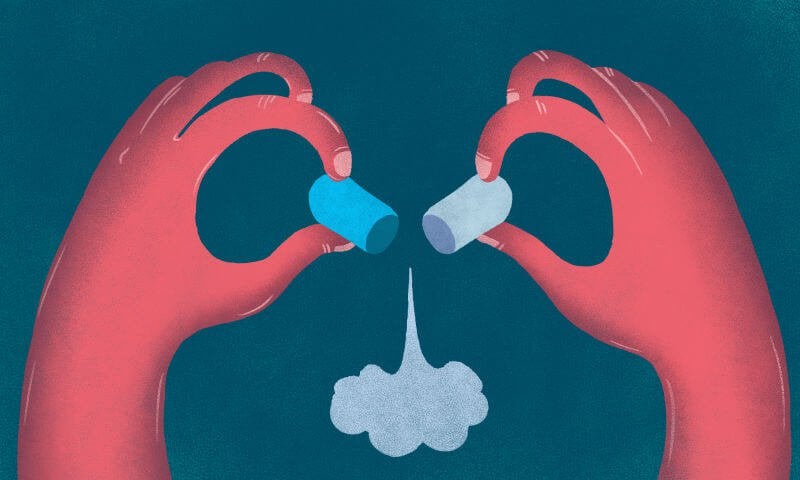We’ve all heard of the famous “placebo effect. ” You may even have experienced it several times in your life. There are many studies that evaluate it, something that does not happen with its opposite, the unknown “Nocebo effect”. This appears in similar circumstances, but published research is rare. which gives the term a certain mysticism.
The placebo effect has been an ally of doctors and researchers for years. On the one hand, it is very effective for conducting experiments without harming people; on the other hand, it allows the specialist to rule out serious problems for some of a much lighter character.
- It is not strange to encounter situations in which parents themselves.
- In the face of exaggerated pain expressed by their children.
- Give them a bullet telling them that it is comforting.
- Most of the time it usually works (as long as it is not a case of force majeure).
- Demonstrating that the suggestion is more powerful than you think.
Like its antagonist, the nocebo effect works due to false expectations. The difference is that in the latter they are quite negative. The patient feels that the drug may have side effects, which most often end up manifesting.
These effects disappear as soon as the subject discovers that he is falsely informed, the incredible neurological process that produces these changes is due to the stimulation of the anterior prefrontal, orbifrontal and cingulate cortex, the same goes for the amygdala, spinal cord, periacueducal gray matter and accumbens nucleus, which, according to MRI studies, affect the perception of health.
We must also take into account the importance of the environment, the attitude of the person and the way to administer the nocebo; In general, studies on this effect are not usually without controversy due to their ethical confrontation.
Prescribing inert treatment to a patient without telling the truth can cause many problems, the controversy focuses on the figure of the doctor, whose oath is to try to minimize symptoms, not aggravate them and much less provoke them.
? Happiness is above all in health. George William Curtis
According to a study recently published by the journal Science, the price of the drug has a great influence on this unconscious reaction. A group of researchers distributed cream-filled bottles among a sample of 49 subjects. Participants were told that this was an experiment to treat atopic dermatitis using two substances that were, in fact, only one.
The blue vials (associated with high price and quality) contained the same cream as the red vials (associated with more accessible drugs). The volunteers were informed that they were likely to experience a burning sensation due to the hypersensitivity of the skin. They had to apply the cream. for half an hour and then subject to a heat generating device.
Despite what it may seem, the results are truly revealing. People who received the bottle of blue cream said they felt more pain than the other group. This is due to the fact that the participants associate the more expensive cream with more powerful effects. A psychological error that kept repeating itself, with more intensity.
In contrast, the researchers found that the areas of the brain that were activated during the study were the same as those of the “placebo effect”. The main difference was found in gray matter, which appeared in different neuron populations. It was found that, although the same zones intervened, the activation patterns were very different.
Similar experiments have been conducted with fibromyalgia patients, after discovering that those with fibromyalgia are the most likely to suffer the negative effects of a drug, it was decided to treat a group with nocebos, which, totally harmless, caused such discomfort in patients that many of them even had to abandon treatment.
Nocebo, we’ve reformulated a lot of doubts. For starters, why isn’t there more research on it, if its effects are so dramatic on so many people, even if there are no personality studies that strengthen it, it is true that motivation can interfere with the results.
People who are obsessed with the supposed changes that the drug produces are more likely to feel pain. The brain, again, is a powerful weapon that must be handled. Hypochondria in some cases can have a negative influence on the patient’s symptoms. .
If we can control how we deal with what we fear, it will be harder to feel the “nocebo effect”, also known as the malignant brother of the placebo effect.

